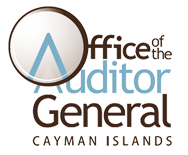Cayman Airways Limited contributes over $200 million to the economy annually, but consistently makes losses and how it is funded is unclear
The report, The Efficiency and Effectiveness of Cayman Airways, was issued today by the Office of the Auditor General (OAG).
The report states that measuring CAL’s performance against its goals, measures and key performance indicators is challenging but where performance can be measured it is mixed.
“It is pleasing to report that CAL has fulfilled the ten key roles it set out in its strategic plans. In particular, CAL provides an essential inter-island air bridge across the three islands, contributes over $200 million annually to the economy and played a crucial role during the COVID- 19 pandemic.”
Ms. Winspear adds, “However, measuring CAL’s performance is challenging because not all of its measures are specific, measurable, achievable, relevant and time-bound. This makes it difficult to assess value for money. Where it can be measured, CAL’s performance is mixed.” Ms. Winspear continues, “Despite having a range of goals and performance measures, CAL does not report effectively on its performance against these to the Parliament and public, hampering scrutiny of its performance.”
The report also states that CAL has improved its fleet, which should improve its performance.
Ms. Winspear says, “The Government approved CAL's plan to replace its four larger aircraft with an equal number of new ones in 2016. It is pleasing to note that CAL received favourable terms and prices for leasing these aircraft.” Ms. Winspear continues, “In addition, CAL has realised all of the benefits it expected from modernising its fleet. This is commendable. CAL can further build on the opportunities the new aircraft offer, such as increasing baggage revenue from the increased capacity.”
The report states that the Government uses CAL to support its national priorities for domestic air services and services to and from destinations it identifies as key to expanding the Cayman Islands’ tourism base and economic development. CAL receives government funding through the Airlift Framework which specifies four route categories – Core, Strategic Domestic, Strategic Tourism and Surplus. The Government gave CAL $152.5 million in funding between 2018 and 2022. The report states that CAL makes losses on three of the four route categories.
The report also states that CAL reported deficits in each of the five years 2018 to 2022. CAL’s total losses in this period amounted to $34 million resulting in an overall deficit position of $25 million as at 31 December 2022.
The Auditor General says, “CAL received over $150 million in government funding in the five years 2018 to 2022. However, it is unclear what that government funding is intended to cover. Without this clarity, the Government cannot hold CAL’s management and Board to account for CAL’s financial performance.” Ms. Winspear adds, “CAL is not fully funded by the Government for Strategic Domestic routes that provide essential lifeline services between the three islands. It is not clear why the funding model does not cover all costs that are not covered by passenger fares” Ms. Winspear continues, “I urge CAL and the Government to urgently revise the Airlift Framework to make clear what the Government’s funding is intended to cover.”
The report also states that CAL does not usually receive the funding it requests as part of the budgeting process and often receives supplementary appropriations.
Ms. Winspear says, “It is disappointing that CAL and the Government do not set realistic budgets. I have commented many times before on the shortcomings of the current budgeting framework and how inadequate budgeting consistently results in the need for supplementary appropriations. This is yet another example.” Ms. Winspear adds, “Combined, the funding model and budgeting process impact CAL’s financial performance and the level of deficits incurred. I encourage CAL and the Government to set realistic budgets to allow adequate monitoring and measuring of CAL's financial performance.”
More information about the report can be obtained by contacting Sue Winspear at (345) 938-3201 or Angela Cullen, Deputy Auditor General (Performance Audit) at (345) 922-3220.
Notes to the editor
- The audit covered CAL’s governance, oversight, performance and use of resources for the five years from 2018 to 2022. We considered 2023 data and information where relevant to ensure that the findings are current.
- The audit also assessed the high-level direction the Ministry of Tourism and Ports (MTP) and the Cayman Islands Department of Tourism (CIDOT) give CAL. The audit evaluated the impact of the Edward Bodden Airfield in Little Cayman being certified for small aircraft only on CAL’s financial performance. However, the audit did not assess the Government’s plans – and progress against them – to get the Edward Bodden Airfield certified for larger aircraft. The audit did not assess the selection process for the new Grand Cayman to Barbados route.
- Exhibit 2 in the report shows CAL’s Airlift Framework and the routes CAL includes under each category.
- Exhibit 13 in the report shows CAL’s total net profits and losses for each of the four route categories over the five years.
- Exhibit 13 shows CAL’s requested and approved funding from 2018 to 2022.
- Overall, we make 14 recommendations in this report, covering CAL’s funding model, financial and non-financial performance, strategic direction, governance, and workforce planning and management. In our view, the most important recommendations are those on the funding model and financial performance, including budgeting. CAL cannot implement the most important recommendations alone, so I urge the Government and CAL to work together to implement these recommendations as soon as possible.
Engage with our content
Share or comment on our social media or submit your comments/feedback in the form below.
